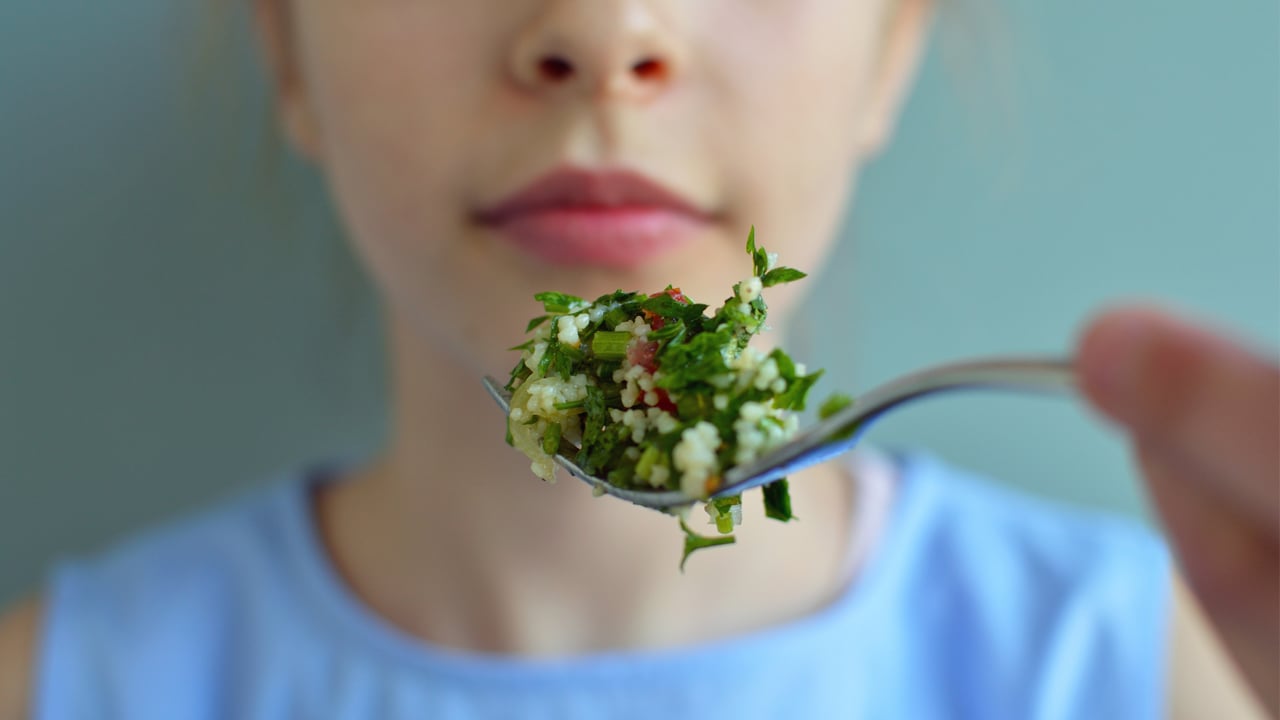I’d waged a battle with my body for much of my life, tying my self-worth to the number on a scale. How could I pass that baton of guilt, shame and diet culture on to my kids?
My kids inherited certain things from me: my quick wit, my hazel eyes and also my body type.
I was a chubby child. The adults in my life told me it was “puppy fat” and that I’d outgrow it. When I didn’t, I was sent to a weight-loss group for fat kids in grade 4. I remember nothing about it apart from the humiliation of seeing another boy from my class there.
I put on more weight as I grew into a teenager. My mum, who struggled with her own weight, chose Christmas Eve to force me on my grandmother’s scales. I was told I shouldn’t weigh that much.
I grew up on a pretty steady diet of fish fingers, baked beans, and chips. It was the extent of my British-born father’s culinary skills. With my kids, I wanted it to be different. I made baby food from scratch. I turned my nose up at KD and fed them quinoa before most of us knew how to pronounce it correctly.
As my two kids grew up, they put on weight. I worried about them getting fat. I worried about them getting teased as I did, adults commenting on their weight as if it was a character flaw—that being fat meant you were lazy, a slob. That they’d be told no one would love them if they were overweight.
But there was a part of me that also felt ashamed of having kids who were overweight. I thought others would judge their weight as a reflection of my parenting. This fear wasn’t unfounded. At the time, a friend in the UK who worked as a social worker mentioned overweight kids were being put into foster care. The message? Allowing your kids to get fat was a form of child abuse.
As their weight climbed, I got a referral through their family doctor to attend a weight-management clinic covered under our provincial insurance plan when they were in grade school. I accompanied my kids once a month to a clinic where they would be weighed, measured and grilled about their daily food intake. My kids would be asked to recount exactly what they ate for breakfast, lunch, and dinner. Did they have snacks? If so, what? How about exercise? Each meal was picked over and I felt judged for what typically ate. “Couldn’t they have more protein at breakfast? Swap out the granola bar for a protein bar. You should limit treats to once a week.”
Still, I thought I was doing the right thing.
Now I think I was wrong.
In the five years since I took my kids to the clinic, body neutrality has entered the lexicon. And with it a shift in how we view our bodies for what they can do, rather than what they look like. But I still struggled to remain judgement-free about my kid’s bodies.
It’s only in the last year I’ve reeducated myself on what I thought I knew about health and weight loss, such as the limitations of measuring health against the BMI, how body size is more than “calories in, calories out,” and alarmingly a study that shows dieting in adolescents has been found to predict weight gain.
What’s been harder to reconcile is my own internalized fatphobia. I’d waged a battle with my body for much of my life. My self-worth, my lovability tied to the number on the scales. Yet, I passed that baton of guilt, shame, and preoccupation with diet culture on to my kids. Their bodies couldn’t simply be. They had to be fixed.
It was through reading author Virginia Sole-Smith, author of the newsletter Burnt Toast, that I first questioned whether my child’s body size was my fault. (“You feel guilty because we are told that fat kids are failures. They are not. You feel guilty, because we’ve been told that fat kids are proof of poor parenting. They are not,” writes Sole-Smith.) Her writing felt like permission to think differently about my parenting in relation to my children’s weight. It gave me permission to let my kids enjoy comfort food, because food is meant to be comforting.
I also started listening to the podcast Maintenance Phase, which investigates the science behind health food trends, fad diets and popular nutritional advice. Their episode on fat camps was sobering for me. One of the hosts, Aubrey Gordon, describes her experience at a fat camp in middle school as, “a fucking shame factory.”
I wondered if that’s how my kids might have felt when I sent them to the weight management clinic. I didn’t consider whether putting a nine-year-old on a diet could lead to developing an eating disorder, or whether they’d feel the kind of shame Gordon did at fat camp; the shame I felt when I was admonished for what I ate, how I looked as a child.
My kids have helped me learn these lessons. It feels, to me, like there’s a sea of change in this generation’s acceptance of all bodies. My daughter doesn’t hesitate to call me out for “body shaming,” or if I refer to a food as “bad.”
What I’ve come to learn is that I don’t have a right to comment on the size and shape of my kid’s bodies. “Some of us are going to be fat,” writes Sole-Smith. “And that has to be okay with the people who love us.”
